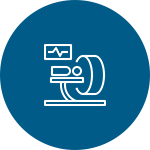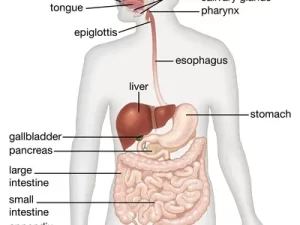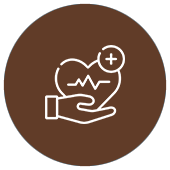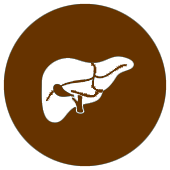Dr AvinashTank, is a super-specialist (MCh) Laparoscopic Gastro-intestinal Surgeon,
Dr Avinash Tank
Experienced, Skilled &
Internationally Renowned
having experience of more than a decade & more then thousand surgeries to treat all surgical disease (like Obesity,Stone & Cancer) or Liver,Gall-bladder,& Gastro-intestinal organs.


having experience of more than a decade & more than thousand surgeries to treat all surgical disease (like Obesity, Stone & Cancer) of Liver, Gall-bladdder, & Gastro-intestinal organs.
Internationally Renowned


DR. AVINASH TANK
Best Gastroenterologist in Ahmedabad
Dr AvinashTank, is a super-specialist (MCh) Laparoscopic Gastro-intestinal Surgeon, who has in-depth knowledge of disease of digestive organ and their treatment. He has been trained at most prestigious centre of country (SGPGIMS) & Abroad (Japan & South Korea) that makes him one of the best gastroenterologist in Ahmedabad. He is the recipient of many awards as Gastrologist Doctor at various prestigious international and national conferences.
Dr Avinash Tank having experience of more than a decade as best gastroenterologist in Ahmedabad & more than thousand surgeries to treat all surgical disease (like Obesity, Stone & Cancer) of Liver, Gall-bladdder, & Gastro-intestinal organs by laparoscopic approach (Key Hole Surgery) & open approach. Being Gastrologist doctor, He is an active member of Prestigious International Surgical Societies, he remains update on advances in treatment and had delivered international quality results for his patients at home.
Special Cases with Successful Recovery
We have treated patients from all across the world

Patient Name : Muniram
Country: Canada
Patient Name :Hazi Yasmin
Country :Africa
Patient Name :Ruchita
Country : Australia
Patient Name :Valand
Country :UK
Patient Name :Basir
Country :Dubai
Patient Name :Parmanand
Country :USA
Benefits of Treatment At Dwarika Hospital

Treatment by Super-specialist Doctor
Get treatment by most -experienced and superspecialist doctors & his Team

Personal Care
We care through-out the journey of treatment

Comfortable Infrastructure
Large size wheelchairs, stretcher, OT table

24 x 7 Full Support
Ready to resolve any query at any time

Painless treatment
No or negligible pain after surgery

Keyhole / Laparoscopic Surgery
Very small cut, may not be visible after sometime

Early Start of Diet
Liquid diet is started 6 hours after the surgery

Early Return to Home
You will be home after 2nd day
Our Gastroenterologist Service
Behind the word mountains, far from the countries Vokalia and Consonantia, there live the blind texts. Separated they live in Bookmarks grove right

Emergency & Trauma
Acute Pain and Injury to digestive organs is common disease now a days
Our Gastroenterologist Service
Behind the word mountains, far from the countries Vokalia and Consonantia, there live the blind texts. Separated they live in Bookmarks grove right

Emergency & Trauma
Acute Pain and Injury to digestive organs is common disease now a days
Dr. Avinash Tank's primary mission and ultimate goal is Reduce Weight to Regain Health
Experience
Award & Presentations
Satisfied Families
Successful Surgeries

Endoscopy
Initiative of Dr. Avinash Tank
FAQs
Several risk factors can contribute to the development of common diseases of the digestive system. Here are some examples:
- Gastroesophageal Reflux Disease (GERD):
- Obesity: Excess weight can increase pressure on the stomach, leading to acid reflux.
- Hiatal hernia: This condition allows stomach acid to flow back into the esophagus.
- Smoking: Smoking weakens the lower esophageal sphincter, allowing acid to reflux into the esophagus.
- Certain foods and beverages: Spicy foods, citrus fruits, tomatoes, chocolate, caffeine, alcohol, and carbonated beverages can trigger acid reflux.
- Peptic Ulcer Disease:
- Helicobacter pylori infection: This bacterium is a common cause of peptic ulcers.
- Regular use of nonsteroidal anti-inflammatory drugs (NSAIDs): Long-term use of NSAIDs like aspirin, ibuprofen, and naproxen can increase the risk of ulcers.
- Smoking: Smoking impairs the healing of ulcers and increases the risk of complications.
- Inflammatory Bowel Disease (Crohn’s disease and ulcerative colitis):
- Genetic factors: A family history of inflammatory bowel disease increases the risk.
- Immune system dysfunction: An abnormal immune response may contribute to the development of these conditions.
- Environmental factors: Certain environmental triggers, such as smoking and certain medications, can increase the risk.
- Age and ethnicity: These conditions are more common in young adults and certain ethnic groups.
- Gallbladder Disease:
- Obesity: Excess weight is a significant risk factor for developing gallstones.
- Female gender: Women are more prone to gallbladder disease than men, especially during pregnancy and with the use of hormone replacement therapy.
- Rapid weight loss or low-calorie diets: These can increase the risk of gallstone formation.
- Family history: Having a family history of gallstones increases the likelihood of developing them.
- Colorectal Cancer:
- Age: The risk of colorectal cancer increases with age, particularly after the age of 50.
- Family history: Individuals with close relatives who have had colorectal cancer or certain hereditary conditions have a higher risk.
- Personal history of polyps or inflammatory bowel disease: A history of colorectal polyps or inflammatory bowel disease increases the risk.
- Lifestyle factors: Sedentary lifestyle, a diet high in red and processed meats, low fibre intake, obesity, and smoking can increase the risk.
- Liver Disease (e.g., hepatitis, cirrhosis):
- Hepatitis B or C infection: Chronic infection with these viruses increases the risk of liver disease.
- Excessive alcohol consumption: Long-term and excessive alcohol intake can lead to liver damage and cirrhosis.
- Obesity: Obesity and nonalcoholic fatty liver disease (NAFLD) can progress to inflammation and liver damage.
- Certain medications and toxins: Prolonged use of certain medications or exposure to toxins can contribute to liver disease.
The digestive system can be affected by various diseases and conditions. Some common diseases of the digestive system include:
- Infection: Simple infection, Viral infection, Bacterial infection, Tuberculosis,
- Ulcer:
- Polyp
- Cancer
- Stones
There are 9 organs are involved in process of food digestion, once your enjoy tasty food. If all organs are listed as per their specific name, then there are 17 organs are working together.
Our food digestion starts from mouth (oral cavity) where digestion begins. It is responsible for chewing and breaking down food into smaller pieces. The diseases of this area is taken care by dentist. So for care point of view, digestive organ starts from Esophagus (Food Pipe)
- Esophagus:
- A muscular tube that connects the mouth to the stomach. It transports food from the mouth to the stomach through rhythmic contractions called peristalsis.
- Stomach:
- A muscular organ that receives food from the esophagus. It secretes gastric juices that help break down food and mix it into a semi-liquid substance called chyme.
- Small Intestine:
- This is the longest part of the digestive tract and consists of three segments: the duodenum, jejunum, and ileum.
- The small intestine is responsible for the absorption of nutrients from food into the bloodstream.
- Liver:
- The largest internal organ, located in the upper right portion of the abdomen.
- It produces bile, which aids in the digestion and absorption of fats, and performs various metabolic functions.
- Gallbladder:
- A small organ located beneath the liver.
- It stores and concentrates bile produced by the liver, releasing it into the small intestine when needed for digestion.
- Pancreas:
- A glandular organ situated behind the stomach.
- It produces digestive enzymes that are released into the small intestine to further break down food, as well as insulin and other hormones that regulate blood sugar levels.
- Large Intestine (Colon):
- This organ absorbs water and electrolytes from the remaining digested material, forming feces.
- The colon also houses beneficial bacteria that aid in the breakdown of undigested food and the production of certain vitamins.
- Colon is about 150 cm long and its identified by different name: Caecum, Ascending Colon, Hepatic Flexure, Transverse Colon, Splenic Flexure, Descending Colon, & Sigmoid Colon.
- Rectum:
- The final portion of the large intestine where feces are stored until they are eliminated from the body.
- Anus:
- The opening at the end of the digestive tract through which waste material is expelled from the body.
These organs work together to facilitate the digestion and absorption of nutrients from food and eliminate waste products from the body.
Appendix: The appendix is not an organ of active food digestion in humans. It’s a rudimentary organ. Its located at the junction of the small intestine and large intestine. The diseases of the appendix are treated by a gastro-surgeon.
Preventing diseases of the digestive organs involves adopting a healthy lifestyle and following good preventive practices. Here are some general guidelines to help prevent diseases of the digestive system:
- Eat a healthy diet: Focus on a balanced diet rich in fruits, vegetables, whole grains, lean proteins, and healthy fats. Limit the consumption of processed foods, sugary snacks, and high-fat foods. Adequate fiber intake can help maintain bowel regularity and reduce the risk of conditions such as constipation and diverticulosis.
- Stay hydrated: Drink an adequate amount of water throughout the day to support proper digestion and maintain optimal bowel function. Aim for at least eight cups of water daily, or more if needed.
- Practice portion control: Avoid overeating and practice portion control to maintain a healthy weight. Excess weight can increase the risk of conditions such as acid reflux, gallstones, and fatty liver disease.
- Maintain a healthy weight: Aim to achieve and maintain a healthy body weight through a combination of a balanced diet and regular physical activity. Obesity is associated with an increased risk of conditions like gastroesophageal reflux disease (GERD), gallbladder disease, and certain cancers.
- Be physically active: Engage in regular physical activity such as walking, jogging, cycling, or any exercise that you enjoy. Regular exercise helps maintain a healthy weight, improves digestion, and reduces the risk of certain digestive disorders.
- Limit alcohol consumption: Excessive alcohol consumption can lead to liver disease, pancreatitis, and other digestive disorders. If you choose to drink alcohol, do so in moderation. The recommended limits are up to one drink per day for women and up to two drinks per day for men.
- Avoid tobacco use: Smoking increases the risk of various digestive conditions, including peptic ulcers, Crohn’s disease, colorectal cancer, and pancreatic cancer. Quit smoking and avoid exposure to secondhand smoke
- Practice safe food hygiene: Wash your hands thoroughly before handling and consuming food. Ensure that your food is properly cooked, stored, and handled to prevent foodborne illnesses that can affect the digestive system.
- Get vaccinated: Follow the recommended vaccination schedules to protect against hepatitis A and B, which can cause liver inflammation and other digestive complications.
- Schedule regular check-ups: Visit your healthcare provider for regular check-ups and screenings. Early detection and timely treatment of digestive disorders can significantly improve outcomes
The laparoscopy approach is used to see the outer side of digestive organs. Laparoscopy is used to make a diagnosis of a few diseases and is mainly used for the treatment of almost all diseases of digestive organs.
Laparoscopy is a surgical technique that involves making small incisions in the abdomen to access and operate on internal organs. It utilizes a laparoscope, which is a thin, long tube equipped with a light source and a camera.
The benefits of laparoscopy compared to traditional open surgery include smaller incisions, reduced scarring, less pain, shorter hospital stays, quicker recovery times, and a lower risk of complications.
Laparoscopic surgery is commonly used in various surgical procedures, including gallbladder removal, appendectomy, hernia repair, colorectal surgery, cancer surgery and bariatric surgery.
Endoscopy is a procedure to see the inner side of the digestive tract using a flexible tube with a camera called an endoscope.
It helps in the diagnosis and treatment of various gastrointestinal conditions by allowing direct visualization and the collection of tissue samples for biopsy.
Gastroenterologists diagnose and treat a wide range of conditions, including gastroesophageal reflux disease (GERD), irritable bowel syndrome (IBS), inflammatory bowel disease (IBD), liver diseases (such as hepatitis and cirrhosis), gallbladder and biliary tract disorders, pancreatic disorders, and gastrointestinal cancers.
Treatment by Medicines: There are few diseases which are primarily treated by medicines, like
- Simple gas or acidity
- Jaundice due to Liver infection (Hepatitis A,B,C,D,E)
- IBS (Irritable Bowel Syndrome)
- Diarrhea due to infection of intestine
Treatment by Surgery: There are few diseases which are primarily treated by surgery, like
- Gallbladder Stone, Pancrease Stone, Liver Stones
- Hernia (Umbilical, Incisional, Hiatus, Inguinal, Femora)
- Appendix
- Intestinal Blockage, Intestinal Bleeding, Intestinal Perforation
- Cancer of all digestive organs
- Bariatric Surgery
Treatment by Medicines (First) & by Surgery (Later On):
There are few diseases, which are initially treated by medicines. If these diseases do not completely improve, recur after initial treatment or when the patient develops side effects of drugs required for the long term, surgery is offered as last and more effective treatment for such diseases. Like
- Acidity or Reflux or GERD due to weak valve or associated hiatus hernia
- IBD (Inflammatory Bowel Disease: Ulcerative Colitis, Crohn’s Disease)
- Intestinal Tuberculosis
- Liver Cirrhosis with complications
You should consider seeing a gastroenterologist / Gastro surgeon if you experience problems with persistent or recurring symptoms related to your digestive system, such as
- Abdominal pain
- Vomit
- Blood Vomit
- Jaundice
- Diarrhoea
- Constipation
- Gas
- Heartburn (Acidity / Reflux / GERD)
- Swallowing difficulties
- Rectal bleeding
- Unexplained weight loss.
Most people misunderstand that gastro doctors only treat problems related to gas in the tummy. Along with gas problems, there are more problems with digestive organs (listed above).

Gastroenterology is a branch of medicine that focuses on the diagnosis and treatment of disorders and diseases affecting the digestive system, including the esophagus, stomach, small intestine, colon, liver, gallbladder, and pancreas.
Testimonials
Mehul Shah
![]()
Treat in the best way and very highly recommended as bariatric surgeon in Ahmedabad to everybody & especially to desperate people who try to solve their obesity problem. Thanks, Dr. Avinash Tank.
Kapil Patel
![]()
It was a really good experience for bariatric surgery in Ahmedabad. I suggest to all who are fighting with obesity to visit Dwarika Clinic and meet Dr. Avinash Tank.
Harsh Khurana
![]()
Thanks for the Google users for sharing there views and rating about Dr. Avinash Tank on Google. Overall experience about doctor is more than five star. Doctor & staffsare very nice and there behavior likes a family with visitors and patient. God grace I found Dr. Avinash Tank for weight loss surgery in Ahmedabad through Google and had remedy for my problem. Thanks again and wish best luck for future.
Kind Words From Patients










